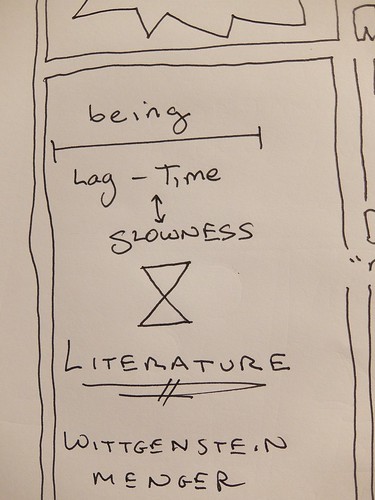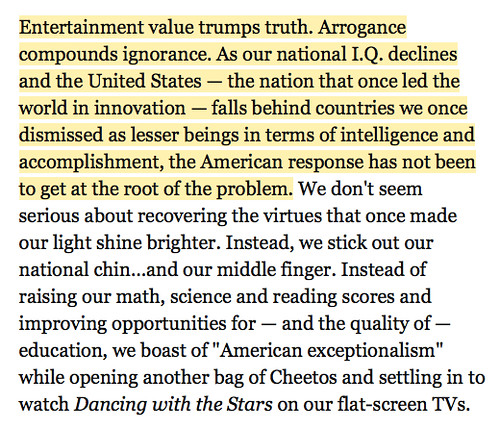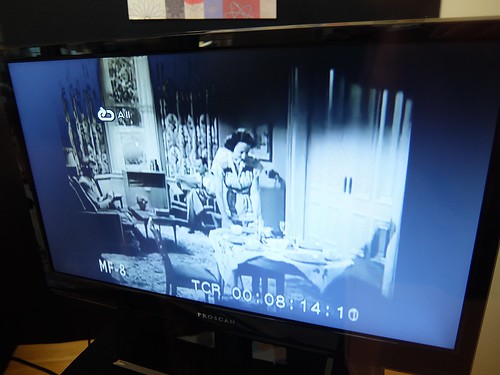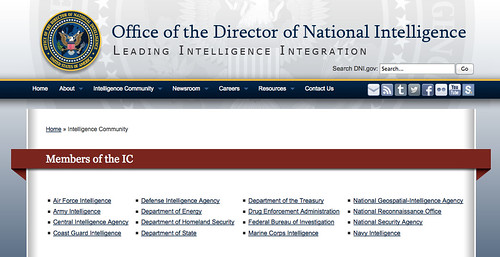As I was thumbing through Youtubes about
ATP Synthase, I realized sometimes I was looking through a "church window" meaning a religious group was framing the animation as "proof of God" in some ongoing battle we mostly find in Euro-Anglo cultures, but I'm sure elsewhere as well, perhaps on planets yet discovered.
I hearken back to an ISEPP lecture in which our teacher very much wanted to say that
bacteria were intelligent. He wasn't trying to say they knew the alphabet (well... OK, RNA is kind of like one), but that they shared genomic material (alphabet soup) in ways that short cut merely random responses. They adapted quickly, they adapted well. Random mutations would be mere fumbling in the dark, relative to the responses he was seeing.
Some kind of against-the-odds upstream leap appears, a non-predictable leap, a surprise, which we might attribute to a black box (for now): Synergy: the behaviors of wholes unpredicted by the behavior of their parts considered in isolation. "
Emergence" is another word we find applied to this phenomenon, sometimes associated with "intelligence".
Donning a Wittgenstein-inspired Sherlock Holmes hat, and lighting my pipe, affecting Victorian mannerisms, I would investigate "intelligence" as a word, a tool of communication, and note that we've oft admired non-human i.e. "natural" phenomena for their intelligent design.
"Intelligent design" is a meme fragment, a piece of textual RNA, like a protein set in type, that we'll likely have seen before, if used to reading, in connection with all kinds of "natural" phenomena. A bird's nest. The bird itself. A bat (echo location). Bird migration.
We see the sense of it: the solution makes sense in light of the challenges. Our use of "intelligent" is in light of our own understanding of its fitting cleverness. We comprehend. We're impressed by how it gets the job done. That gets us thinking of
jobs we do ourselves.
We may not pause at first to ask "who's idea?" but if we do, we might answer "God" as a way of saying we have no more complicated answer, as we might regarding something humanly contrived. For some people, having such an unsatisfying answer is enough to squelch the question i.e. if you're just going to say "God" all the time, why ask?
But lets remember: if we've entered the realm of patents and proper names, we might have a lot more to say, regarding "whom" or, in some assumed ethnicity, we might say "it's the Queen's" as the titular owner of whatever is in the Realm ("the company" plays a similar role in that its employees may be awarded with titles in lieu of outright ownership of their inventions, which company lawyers need to account for as distributed to an inner circle of partners, some hidden, or stakeholders / shareholders).
What's odd about this word "natural" and why I bring out the scare quotes is how we of academic schooling use it specifically to exclude the "man made" or "manufactured" which in some sense relates to "intentional" and/or "designed intentionally" -- to which we link such memes as "a thought process" (such processes are the stuff of philosophy books). Finger nails are natural, but finger polish is not. The lens of an eyeball is natural, but the corrective contact lens is not. Brains are natural, but thoughts about them are not.
When people think things up and then build them, we don't say that they're "natural" any more, but of course whatever humans do or make is in another sense within the natural sphere, the domain of Creation as some might say. Nature is at least as intelligent as the humans it contains and partly consists of: we could say that as a truism, but for the fact that "nature" is so often used precisely to cleave reality in two.
"Human stuff" is distinct, across some invisible line from "
non-human stuff" -- and then lo and behold, when we find intelligence on
both sides of said invisible line, we get spooked, as if encountering aliens in the
X-Files sense. At that point we might think things like "we
supposed we were the only intelligence around here but..."
Not that we all go through that. Many humans have always taken for granted they were in some continuum with other beings, some "higher" than ourselves. That doesn't render them immune from future shock, but then "shock" is decidedly negative. "Surprise" is more neutral. Imagining oneself in a community with non-human intelligent beings does not shield one from being surprised by community developments, I suppose one might say.
Those having a sudden rediscovery of Synergy as a principle may feel "less alone" as when angels, ETs and even polytheistic type beings show up as a persistent possibility (perhaps not all at once -- the possibility of "
just ETs" is sufficient for an example of that new awareness of otherness, no close encounter required).
We need to conceptually visualize these "intelligencia", these alternative "sapients" ("alternative" because we imagine ourselves to be such) and fill our canvases accordingly, with story lines and figures.
One may have these experiences and yet still adhere to a Buddhist doctrine of "no self nature" meaning these visions depend to some extent on what one had for breakfast that morning, i.e. the illusion is always of parts with a sense of anchoring (maybe, at best) in some whole.
Psychology is likewise ready with answers that don't involve bending the rules around physics or admitting to the efficacy of whatever superstitious nonsense is sold to keep false hopes aflame or, conversely, crush morale with false certainties. Many simulations dissemble.
So the machinery is this: we start out democratic, allowing for "intelligence" to be manifest all over, but then we have this "just us" syndrome (the folk etymology of "just-ice") whereby it no longer seems appropriate to apply the word "intelligent" to such as bacteria. That perfectly rational usage now becomes "poetic license" or "a metaphor" whereas humans learning to read are "quite literally intelligent" for doing so. Talk about superstition!
"They can't be intelligent only humans are truly intelligent..." -- objections of that nature arise because the same word ("intelligence") is caught up in different games. We want "intelligent" to mean "has thoughts" all of a sudden whereas maybe that wasn't so important last week, when we visited the aviary. In some schools, "having thoughts" is a sign of slowing down. We have the phrase "knew in a flash" to suggest "having thoughts" may be too plodding for some forms of intelligent activity.
Call it "human exceptionalism" maybe, this desire to excise ourselves from nature and posit ourselves strangers in a strange land (existential aliens). We get to be different, and that's no big surprise as the language belongs "to us" (or so we think). We sometimes spook ourselves, by positing intelligence everywhere, then forgetting that's allowed (even given), and getting shocked when coming up against what therefore seems to be a contradictory usage. The contradiction gives us pause, and a sense of appreciation (perhaps), even wonder.
What's more anthropomorphic, thinking humans are special or thinking intelligence is spread out all over? It's easy to say which is more anthropocentric, supposedly a sin to avoid when being really serious about one's science.










